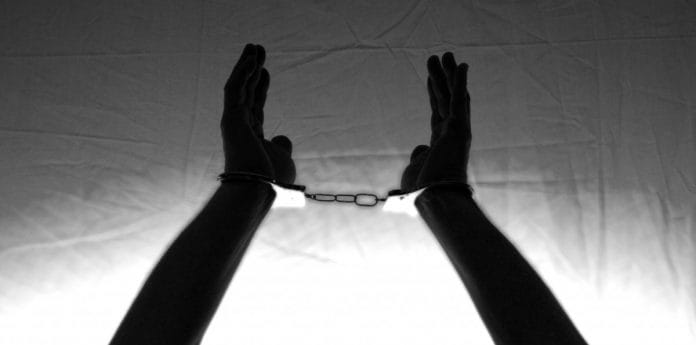Bail is the rule; jail is the exception” is the first lesson we were taught when we started practising law. But a glance at the news headlines these days will tell you that bail is the exception. While the State must diligently prosecute those guilty of crimes, indiscriminate arrests and long periods in custody or preventive detention are not acceptable in a democracy.
The Constitution (Article 21) treats liberty of the individual as sacrosanct. Right to liberty has none of the fetters of other fundamental rights, but laws that can deprive an individual of liberty must be fair and just.
In 1973, finding arbitrary and motivated arrests rampant, relying on the recommendations of the 41st Law Commission, Parliament made a provision for anticipatory bail for the first time. The purpose was to avoid unnecessary arrests and harassment of individuals at the hands of police. The post-Emergency period between 1978 and the mid-1980s was the libertarian era in the Supreme Court, with Justice Krishna Iyer and other judges in the Supreme Court giving pro-liberty and pro-citizen decisions.
With the liberalisation of the economy in 1991, the same court (in the absence of coherent statistics), perceiving an increase in economic crime, reversed its earlier liberal approach to bail. It then started looking at liberty through the investigator’s/prosecutor’s eyes, and not the constitutional mandate of liberty.
Its approach changed to being restrictive of liberty, leading to enhanced periods of custody. So, in 1997, in Anil Sharma’s case (son of former Union communications minister, Sukh Ram), the court, cancelling the anticipatory bail granted, held that “custodial interrogation is qualitatively more elicitation-oriented” than when an accused has anticipatory bail. The reality of use of third degree methods were ignored, holding that “such an argument can be advanced by all accused” as the court had immense faith in “responsible police officers”. In contradistinction, the same year the court in DK Basu observed that the worst violations of human rights take place during investigations. Yet, even while giving directions to safeguard individuals from the abuse of authority, the court paradoxically held that the freedom of an individual must yield to the needs of the State’s security.
Also read: Many in J&K being unlawfully held: Shah Faesal withdraws challenge to his detention
The argument of the needs of “security of the State” has for long been used to restrict the liberty of citizens. We have been enacting and enforcing harsher laws over the past five decades. The presumption of innocence is ignored, and for many offences, the accused has to prove innocence even for bail. Preventive detention laws are used excessively despite inbuilt safeguards.
The fact that investigators are armed with stringent provisions restricting bail under the Prevention of Money Laundering Act, 2005 and the Companies Act, 2013, enables them to arrest with impunity. Simultaneously, the Enforcement Directorate (ED), the Serious Fraud Investigation Office , and other agencies, frequently, and often, hastily use the power of arrest. The increased media glare on criminal cases is, rather than a safeguard to liberty, a weapon against the arrested individual as agencies selectively leak investigation details.
And even for ordinary criminal law offences where the presumption of innocence still applies, the State’s argument of gravity of the offence, coupled with a subconscious thought-process that the accused must show innocence even before trial has begun, is becoming the new norm. The consequence that people remain in jail for extended periods in trials, which often end in acquittals, is glossed over. Meanwhile, our jails overflow with undertrials.
We have forgotten the lesson of the 2G case where the Central Bureau of Investigation (CBI) and Enforcement Directorate (ED), with great fanfare, acted on the Supreme Court’s directions to investigate, prosecuted at will. Declining bail for months, the courts kept in jail those accused even though the CBI and ED had not yet arrested them. After the acquittal, though an appeal is filed, the Indian State or its functionaries have never thought of recompense to those who remained in custody for long periods during trial.
With restrictive bail conditions, and a conservative view on bail, we have forgotten the meaning of personal liberty, which is the greatest of human freedoms. The result of this restrictive approach to human liberty is that as bail is unlikely to be granted, courts give long dates and bypass the principle that the history of liberty is the history of observance of procedural safeguards.
Today, pleas for release from custody by invoking habeas corpus or for grant of bail are often not being given the priority they deserve. Adjourning bails and habeas corpus for long periods strikes at the root of the right to liberty.
The Supreme Court’s decision in Ayya (1989) approving Lord Denning’s words (1949) at the Hamlyn Law Lectures needs to be revisited by lawyers and judges alike. Referring to the English practice, the court observed that “liberty is so precious that whenever one of the King’s judges takes his seat, there is one application which by long tradition has priority over all others. Counsel has but to say, ‘My Lord, I have an application which concerns the liberty of the subject’ and forthwith the judge will put all other matters aside and hear it. It may be an application for a writ of habeas corpus, or an application for bail, but, whatever form it takes, it is heard first.”
Sidharth Luthra is senior advocate, Supreme Court
The views expressed are personal
By special arrangement with ![]()
Also read: Kobad Ghandy — Doon School alum ‘Maoist’ who has been in jail for 10 yrs despite acquittals






